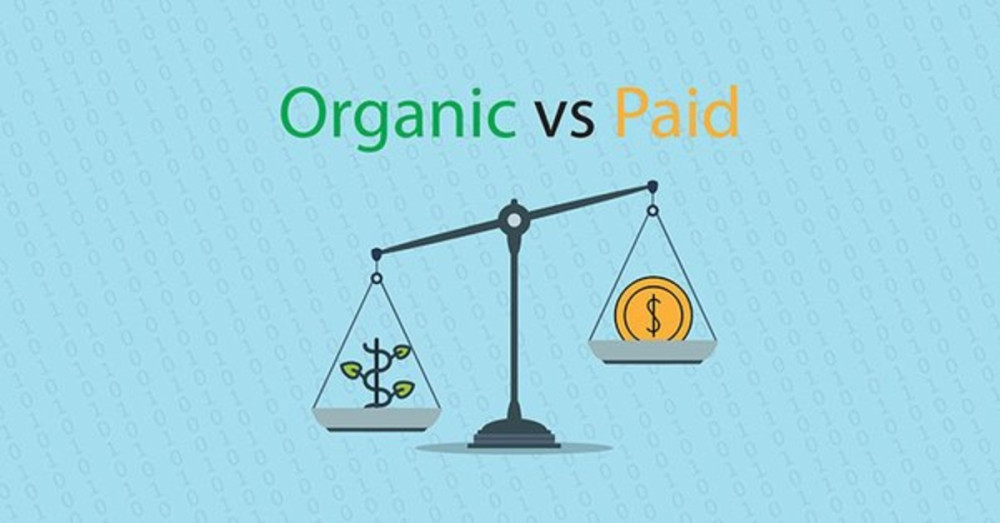Organic and Paid Search: What Are They?
Organic and paid search are two distinct methods for gaining visibility on search engines like Google. Organic search results are listings that appear naturally based on search engine algorithms, without direct payment. These results are driven by SEO efforts, including content quality, keywords, and backlinks. Paid search, on the other hand, involves advertisers paying for their ads to appear at the top of search engine results pages (SERPs) through platforms like Google Ads. Both strategies have their place in a comprehensive digital marketing plan, offering unique advantages for brand visibility and user engagement.
How Do Paid and Organic Search Compare for Brands?
For brands, the choice between organic and paid search depends on goals, budget, and timelines. Organic search is a long-term strategy that builds credibility and offers sustained visibility, but it takes time to see results. Paid search delivers immediate visibility and traffic but requires ongoing investment to maintain. While organic search is cost-effective and trusted by users, paid search offers precise targeting and control over ad placement. Brands often find that a combination of both strategies provides the best results, leveraging the strengths of each to maximize their reach and impact across different channels.
The Benefits of Organic Search
Cost-Effectiveness
Organic search is highly cost-effective because it doesn’t require payment for clicks or impressions. Once a website achieves high rankings through SEO, it can attract consistent traffic without ongoing expenses. While SEO does require time and resources to maintain, the long-term ROI is significant. Brands can save money on advertising while still capturing valuable search traffic, making organic search a budget-friendly strategy for sustained growth. This cost-effectiveness is especially beneficial for small businesses with limited marketing budgets.
Earning User Trust
Organic search results are perceived as more credible by users, as they aren’t marked as ads. This trust is built because these results are earned through relevance and quality, not paid placements. When users find a brand through organic search, they’re more likely to view it as authoritative and reliable. This trust translates into higher click-through rates (CTR) and better engagement, as users believe the content is genuinely helpful. Over time, a strong organic presence can enhance brand reputation and loyalty, making it a valuable asset in digital marketing.
Perpetual Returns
Organic search offers perpetual returns because it continues to drive traffic long after the initial SEO work is done. Unlike paid search, which stops delivering results when the budget runs out, organic search can keep attracting visitors without ongoing costs. High-ranking pages can maintain visibility for years, providing a steady stream of leads and conversions. This long-term value makes organic search an essential component of any sustainable marketing strategy, delivering compounding benefits as the site gains more authority and backlinks over time.
How Does Organic Search Work?
Organic search works by optimizing your website to align with search engine algorithms, which rank pages based on relevance, quality, and user experience. SEO strategies include keyword research, content creation, on-page optimization, and link building to improve your site’s visibility on SERPs. Search engines use complex algorithms to evaluate content and determine its position in search results. The better your SEO, the higher your website ranks, driving more traffic organically. Regularly updating content and maintaining technical SEO are crucial to sustaining rankings and adapting to algorithm changes.
The Benefits of Paid Search
Skip the Line
Paid search allows you to skip the line and secure top spots on SERPs immediately. Unlike organic search, which takes time to build, paid search results appear instantly, giving you quick access to your target audience. This is particularly useful for new websites or time-sensitive campaigns where immediate visibility is crucial. By bidding on keywords, you can ensure that your ads are seen by users actively searching for your products or services. This immediacy is one of the primary reasons businesses invest in paid search, especially for competitive markets.
Precise Targeting
Paid search excels in matching user queries with tailored ads, allowing for precise targeting based on keywords, demographics, location, and more. This precision ensures that your ads reach the right audience at the right time, increasing the chances of conversions. By understanding user intent, paid search helps in delivering relevant ads that resonate with potential customers. Additionally, retargeting options allow you to reach users who have previously interacted with your site, keeping your brand top-of-mind and enhancing the effectiveness of your campaigns.
In-Depth Analytics
Paid search provides access to in-depth analytics that offer detailed insights into campaign performance. Marketers can track metrics such as click-through rates, cost-per-click, conversion rates, and ROI in real time. This data allows for continuous optimization, helping to refine targeting, ad copy, and bidding strategies. The ability to measure and adjust campaigns based on performance data is a significant advantage of paid search. It enables marketers to make data-driven decisions, maximize their budget, and achieve better results with each iteration of their campaigns.
How Does Paid Search Work?
Paid search works by bidding on keywords relevant to your business, ensuring your ads appear when users search for those terms. Advertisers create ads, select keywords, and set budgets within platforms like Google Ads. When users search for those keywords, an auction determines which ads appear based on factors like bid amount, ad quality, and relevance. Successful bids place ads in prominent positions on SERPs, typically above organic results. Paid search offers immediate visibility and control, but requires ongoing investment and management to maintain top positions and optimize performance.


